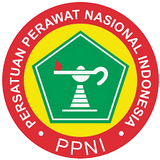A Correlation Between Knowledge And Attitudes Of Early-Married Mothers With Their Reproductive Health Status In The Working Area Of Tunas Harapan Health Center In 2024
Abstract
Globally, it is estimated that there are around 650 million cases of early marriage. The East Asia and Pacific region, including Indonesia, is the third largest contributor to early marriage in the world, accounting for around 13% of global early marriage cases (UNICEF, 2021). The objective of this study is to determine the correlation between knowledge and attitudes of early-married mothers with their reproductive health status in the working area of Tunas Harapan Health Center in 2024.This study is an analytical study with a cross-sectional design. The population consisted of all women who were married before the age of 21 and are currently aged up to 30 years with children, totaling 75 women in the working area of Tunas Harapan Health Center. The sampling technique used was purposive sampling, based on the researchers' considerations and the inclusion and exclusion criteria, resulting in a sample size of 64 participants.The Chi-square test results showed that the variable of knowledge of early-married mothers with their reproductive health status had a chi-square p-value of 0.001 (α<0.05), and the attitude of early-married mothers with their reproductive health status also had a chi-square p-value of 0.001 (α<0.05). Thus, it can be concluded that there is a correlation between knowledge and attitudes of early-married mothers and their reproductive health status in the working area of Tunas Harapan Health Center in 2024. It is recommended that healthcare workers use these findings as a basis for conducting outreach on the importance of reproductive health
Downloads
Copyright (c) 2025 Naomi Ersanly Br Situmorang, Syami Yulianti, Yesi Putri

This work is licensed under a Creative Commons Attribution-NonCommercial-ShareAlike 4.0 International License.







